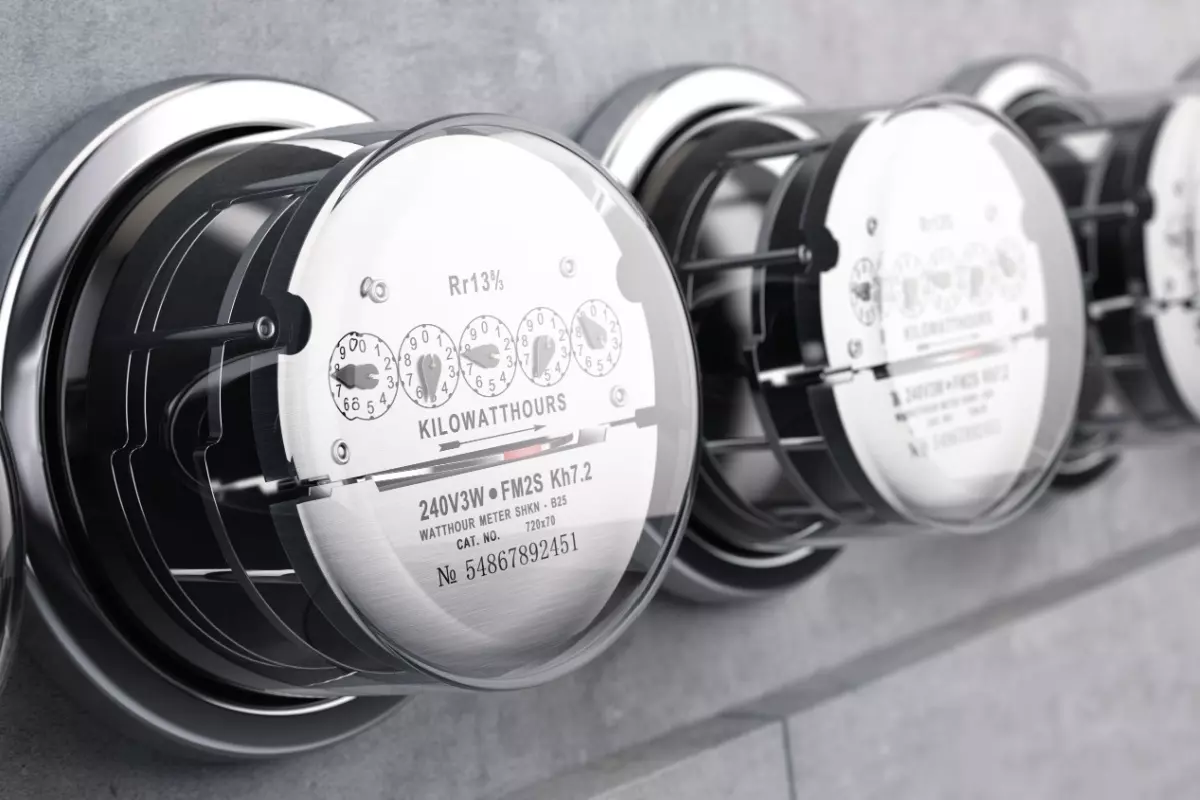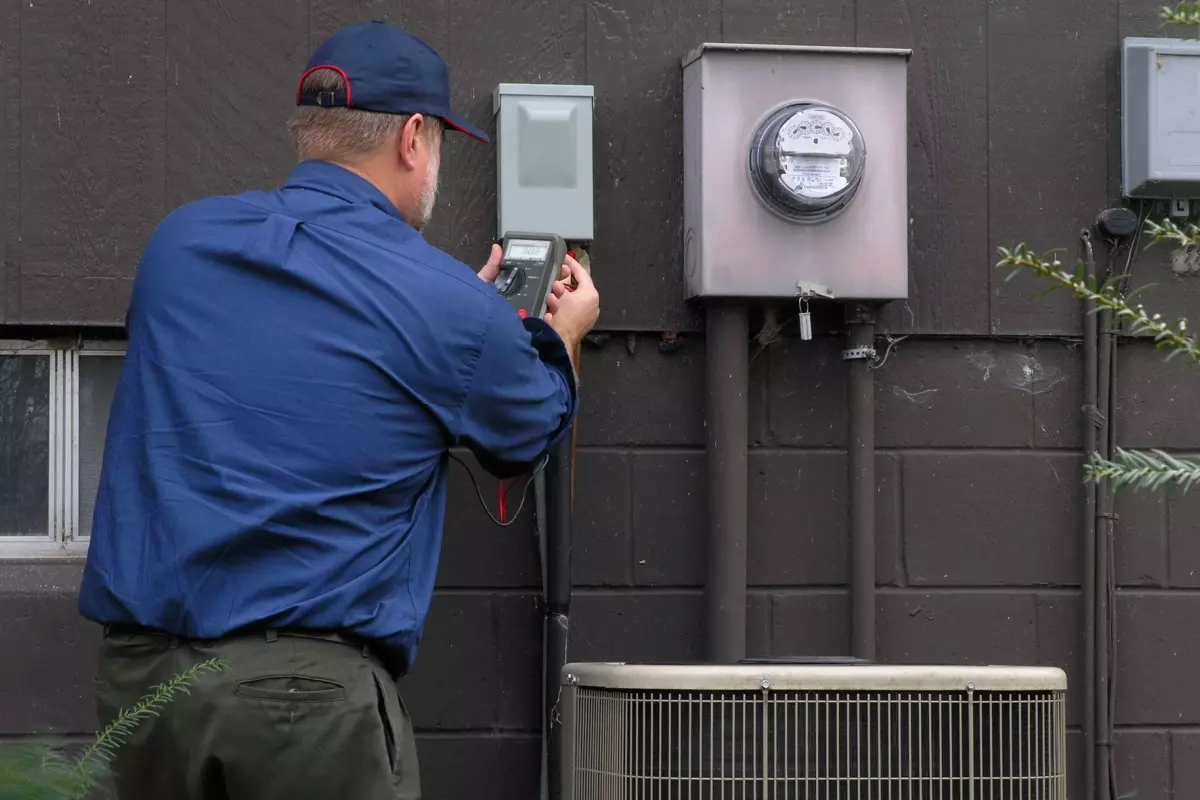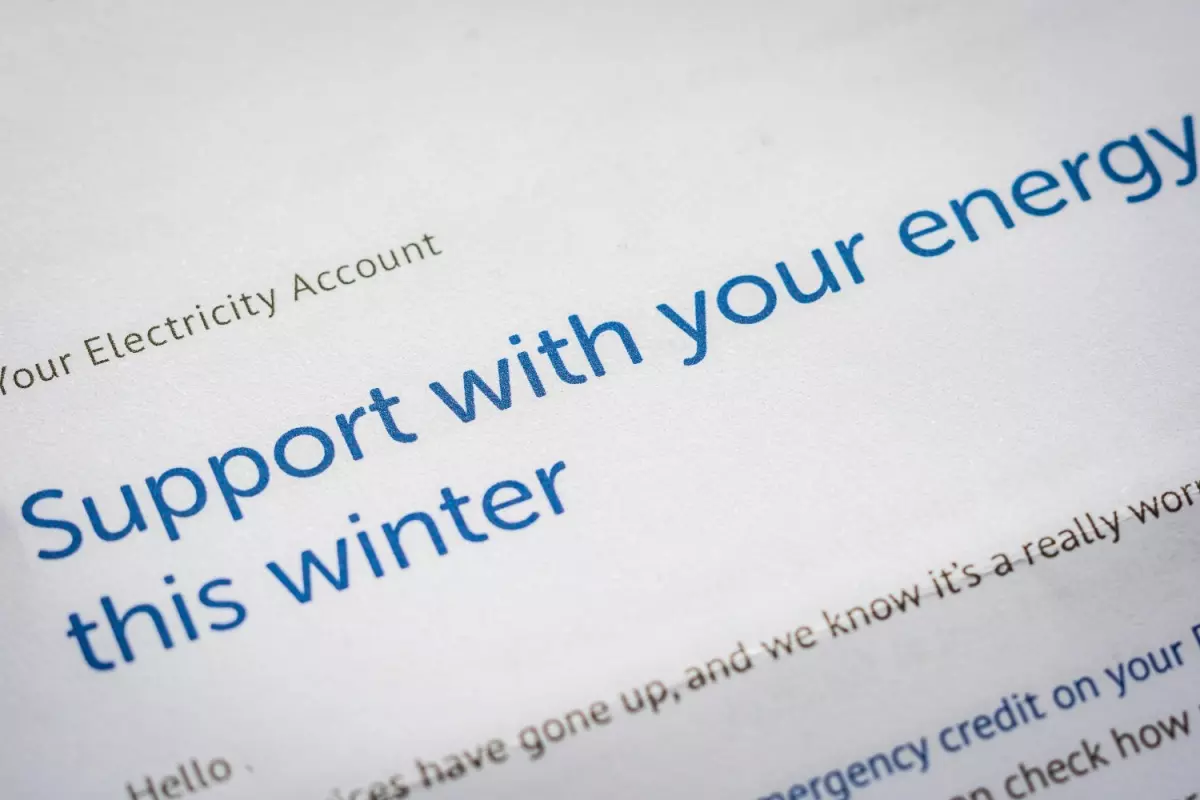Prepayment meters offer a straightforward, pay-as-you-go approach to managing gas and electricity costs. But what happens when credit vanishes faster than expected? This is where financial literacy matters.
In this article, we’ll explore the inner workings of prepayment meters, uncover common reasons for unexpected debts, and share practical tips for managing your energy budget effectively.
What Is a Prepayment Meter and How Do They Work?
Prepayment meters allow you to pay for your energy use in advance, unlike traditional billing systems, which allow you to pay after consumption. Prepayment meters require you to load credit before using gas or electricity – akin to a pay-as-you-go mobile phone.

Here’s a step-by-step look at how prepayment meters function:
- Loading Credit: First, you need to add credit to your account, which can be done using a special card or key. You can add funds to this card or key with your desired amount at designated shops.
- Using the Meter: Insert the loaded key or card into your prepayment meter. This device typically sits inside your home for electricity or outside for gas. The meter has a slot for the card or key and displays your remaining credit.
- Consumption and Charges: As you consume energy, the meter deducts from your preloaded credit. It should be noted that your daily use isn’t the only charge; the meter also deducts a daily ‘standing charge.’ This is a fixed cost covering the energy supply itself, regardless of how much you use. For instance, if the standing charge per day is 55p, this amount will be deducted from your prepaid credit even if you don’t use any gas or electricity that day.
- Monitoring and Topping Up: The meter display provides updated information about your remaining credit, daily standing charge and any outstanding energy debt. If your credit runs low, you’ll need to add to your card or key again to continue receiving energy or gas.
- Emergency Credit: If your credit runs out and you can’t top up immediately, many meters offer a small amount of emergency credit (usually £5 to £10) to keep your supply running until you can add more funds. Once used, emergency credit must be repaid before it can be accessed again.
Reasons You Might Owe Money on a Prepayment Meter
Despite the convenience of managing your budget by paying for energy upfront with prepayment meters, it’s still possible to find yourself in debt. Debt on a prepayment meter can accumulate for various reasons beyond just your immediate energy consumption:
Unexpected Energy Usage
There may be instances where your gas or electricity consumption exceeds the credit that is available on your card. This is similar to an overdraft on a debit card. If you use more than you have on your prepaid card, your utilities won’t be automatically shut off.
However, you will have to pay for the overage, often at a surcharge. Repayment is typically deducted from future top-ups.
Tariff Changes
Tariff changes can impact the cost of the energy you use on a prepayment meter. Energy suppliers may adjust rates due to changes in the wholesale market or new regulations, and they must notify you before these changes take effect.
If you miss these notices and fail to adjust your credit, you might use more energy than your balance covers, leading to debt.
Technical Issues with the Meter
Technical issues with your prepayment meter can lead to unexpected debt due to inaccurate readings, failures in credit uploads, or errors in the meter’s credit deduction system. If your meter displays error messages, continues to consume credit when appliances are off, or your bills are unexpectedly high, it may indicate a fault.

You can check for issues by turning off all your appliances and checking if the meter is still moving. If it is, you should contact the utility company to schedule an investigation with a technician.
Standing Charges
Daily standing charges are a fixed cost applied to your energy account regardless of energy usage. They cover the costs of maintaining the energy network, meter reading services, and emergency services availability.
These charges are automatically deducted from your prepayment meter’s credit daily. It could result in overages if you don’t account for these daily charges in addition to your anticipated usage costs.
Debt From Previous Residents or Meters
When moving into a new property or when meters are replaced or upgraded, there’s a risk of inheriting debt from previous residents or the old meter. Debts incurred by previous occupants may not always be cleared before they move out, potentially leaving an outstanding balance that can be transferred to the new occupant’s prepayment meter.
If you suspect this is the reason you owe money on a prepayment meter, contact your service provider. They will usually clear the debt from your name.
Charges For Missed Appointments
If you schedule a service visit or a meter check and fail to be present at the designated time, your energy supplier may charge a fee. These fees are typically added to your meter as additional debt and can accumulate if multiple appointments are missed.
Managing Overdue Balances on Prepayment Meters
Temporary Credit
If your meter runs out of credits, you can contact your service provider to request temporary credits. Some utility companies might automatically provide this for a limited amount if you exceed your allotted credit limit.
Temporary credit is usually a limited-time offer, but you can ask your provider for an extension if you can demonstrate vulnerability. You may qualify if you:
- Are disabled
- Have a long-term health condition related to sight, hearing, and mental health
- Are recovering from an injury
- Are over the State Pension age
- Are struggling with living costs and household expenses
Repayment Pauses or Plans
If you have an unexpected overage, you’ll be required to cover the overage cost upfront the next time you refill your meter card. To avoid paying in full, you can contact your service provider to negotiate a repayment pause or payment plan.

Some utility companies may allow you to pay in smaller increments or percentages each time you refill your meter card. Others may defer the payment for a few months, giving you time to collect the sum for upfront payment.
Grants
For individuals who have accumulated utility debts, there are trust funds and grant programs that may be able to help cover these outstanding bills. Reach out to the following programs to see if you qualify for a grant:
- British Gas Energy Support Fund
- ScottishPower Hardship Fund
- Ovo Customer Support Package
- E.ON Next Energy Fund
- EDF Energy Customer Support Fund
- Octopus ‘Octo Assist Fund’
- Shell Energy Support Fund
In most cases, you must be a customer for the specific utility company in order to be eligible for a grant. However, grants through the British Gas Energy Support fund are available to everyone – you don’t have to be a customer to qualify.
Fuel Vouchers
Individuals who need a little extra help refilling their prepayment cards should contact their local council for a fuel voucher. This voucher is like a gift card that you can apply to your prepayment meter card.
You’ll receive the fuel voucher as a code, which you can apply to your prepayment meter card at a shop or Post Office signed up to PayPoint or Payzone. You’ll receive the code via email, SMS, or letter.
Warm Home Discount
If you already receive benefits, you may also qualify for the Warm Home Discount. If you do, £150 will automatically be put towards your prepayment meter.

If you receive any of the following benefits, you could be eligible for the Warm Home Discount:
- Guarantee Credit element of Pension Credit
- Universal Credit
- Pension Credit Savings Credit
- Housing Benefit
- Income-based Jobseeker’s Allowance
- Income-related Employment and Support Allowance
- Income Support
- Child Tax Credits and Working Tax Credits – and your income is below the limit that applies to your household
Keep in mind that you can only qualify for the Warm Home Discount if your utility provider is part of the scheme. You can check if they are here.
Cold Weather Payment
Similarly, if you receive benefits, you may also be eligible for Cold Weather Payments to help pay for extra heating costs during colder seasons. Between Nov. 1 and March 31, you will receive a Cold Weather Payment if the average temperature in your area is recorded or forecasted to be zero degrees Celsius or below for seven consecutive days.
You may be eligible for Cold Weather Payment if you already receive:
- Pension Credit
- Income Support
- Income-based Jobseeker’s Allowance
- Income-related Employment and Support Allowance
- Universal Credit
- Support for mortgage interest
Winter Fuel Payment
Finally, if you are at the State Pension age, you may be eligible for a one-time Winter Fuel Payment to help you pay for heating costs. Once you reach the state pension age, you should automatically receive between £250 and £600.
However, if you don’t automatically receive Winter Fuel Payment, you may need to apply. You can apply here.
Sum-Up of the Reasons for Debt on Prepayment Meters
Prepayment meters allow you to pay for energy in advance, but unexpected charges can occur. If you face debts, support options like repayment plans and grants may be available, offering effective ways to manage your financial health. Remember to stay updated on your meter’s status and reach out to your service provider if you encounter any issues to ensure your energy supply remains uninterrupted.